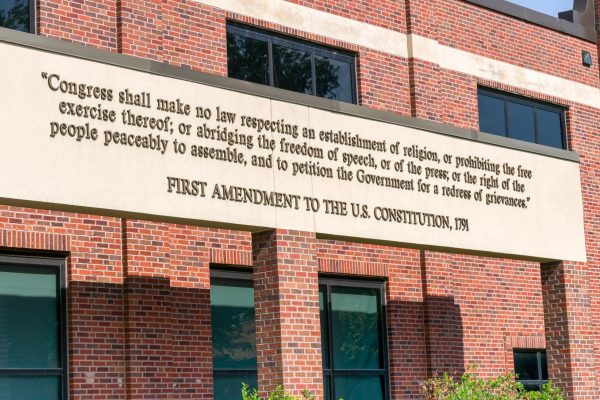Western education equalizes economic classes
Last week, I started a series of articles that I hope will take the conversation about the diversity at Park to a new level. I am grateful for the diversity here because I feel it has opened my mind in ways that I could not have seen before I arrived in the United States.
It is true that we are a very diverse student body. Still, I have been thinking the finished product that comes out in the end might not be as diverse as previously thought.
Park University is a liberal arts college. A liberal arts college in this day and age is a very American affair. Other countries might claim to have liberal arts colleges but it is the Americans who own them. It is the reason that multitudes, including myself, flock to these shores to get this promised American education.
U.S. colleges brand themselves as liberal arts institutions at education fairs while they are recruiting international students. Most students might not understand what the word means but we swallow the spiel hook, line and sinker. Such is the hold and power America has on us.
A liberal arts education is supposed to expose one to a wide variety of scholarly fields or to expose a student to the best intellectual traditions of a student’s civilization. Because we are in a Western country, obviously the tradition here will be Western.
Earlier, I said that what comes out on the other end is the same. Heterogeneity gives into homogeneity. We come in from different cultures but we come out as same culture.
There is an even stronger effect than being westernized. After all, being westernized is nothing new. The forces of modernity in most countries are confused as being the same as Westernization for quite some time.
So, in Kenya to be modern is the same as to be Western. A modern Kenyan has to wear Western clothes, listen to hip hop and have strong opinions about Adele.
There is one thing that unites all the international students at Park and they have it even before they reach the university. This one thread that unites all international students is their class.
It is an even more important sociological factor than race, ethnicity or religion.
In my opinion, this is the reason students here can talk and understand each other.
I will not succumb to my liberal ideology and say we all talk to each other because we are human beings. Whether you are Chinese, Togolese or Saudi Arabian, we all speak the same language and it is not English.
This language we speak is called middle class and some of its vocabulary includes words like IPhone, Google, mortgages and Victoria’s Secret.
We are all united by the fact that we are trying to get an American education. While most of the courses we take will have a strong Western civilization component, we are actually learning is to be proper middle-class citizens – not the global elite. I think that is left to the Ivy League schools.
Everyone else who comes to America wants to go back to their country and be part of the elite. But the real education you get at a liberal art institution like this is how to behave like the Western middle class.
I realized the importance of the middle class in the U.S. by observing America’s politics. I was amazed that politicians would try to appeal to this group called the middle class.
In Kenya, politicians try to appeal to farmers, plumbers and teachers. We call them the working class. In another era and time, they would have been called peasants.
Globalization has spread capitalism to all corners of the world. The middle class is the chief class of this new global capitalism. Excluding American students, I have never met any international student at Park who comes from a class lower than middle class.
I raise this not because I fault us for being in the wrong class. However, this class segregation leads to learning very little at the end of four years. We learn nothing about the other classes.
We will have taken road trips across and visited all the cultural hallmarks of middle-class America.
We will never set foot in the ghetto, never live with an American family on food stamps or see that other side of America.
Your donation will support the student journalists of Park University. Your contribution will allow us to cover our annual website hosting costs, freeing up other funds for equipment, printing and training.





